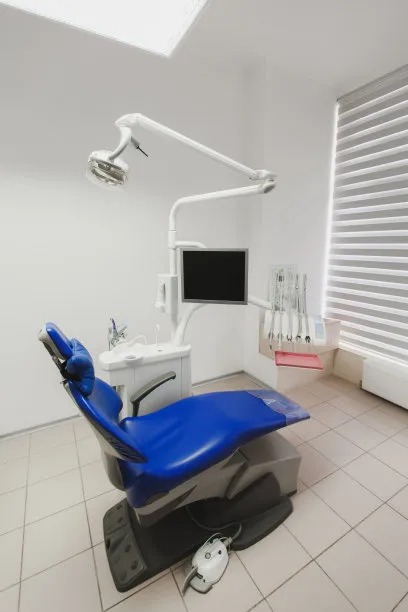Summary: Root canal treatment (RCT) is a common dental procedure aimed at saving severely damaged or infected teeth. However, ensuring safe and effective treatment is vital for optimal dental health recovery. This article discusses essential precautions that should be taken before, during, and after the treatment. Key areas of focus will include patient preparation, ensuring a sterile environment, technical proficiency of the dentist, and post-treatment care. Understanding and adhering to these precautions not only enhance the success rate of the treatment but also support a swift healing process for patients. A well-executed RCT can significantly improve a patient’s quality of life by alleviating pain and restoring function.
1. Patient Preparation for Treatment

Proper patient preparation is crucial for a successful root canal treatment. This involves both physical and emotional readiness. Dentists should begin by thoroughly assessing the patient’s dental history, current symptoms, and any existing health conditions. Comprehensive evaluation not only clarifies the treatment steps but also helps identify any potential complications that could arise during the procedure.
Moreover, providing patients with clear information about the procedure helps alleviate anxiety. Patients should be informed about what to expect during the treatment, including sedation options, duration, and post-treatment sensations. When patients are well-informed, they tend to feel more in control and less stressed, which can contribute positively to the treatments outcome.
Lastly, pre-treatment imaging, such as X-rays, should be used to provide a clear understanding of the tooths condition. This diagnostic step is vital to plan the treatment accurately and anticipate challenges that may occur during the procedure.
2. Ensuring a Sterile Environment
Creating and maintaining a sterile environment is a critical precaution in root canal treatment. Contamination during the procedure can lead to post-treatment infections and other complications. Dentists must implement strict sterilization protocols for instruments and equipment used throughout the treatment.
Furthermore, the clinical setting must adhere to infection control practices, such as using disposable gloves, masks, and drapes. The dental team should also ensure that the area is disinfected prior to the procedure. Such measures significantly reduce the risk of introducing bacteria into the root canal.
Additionally, the dentist’s workspace should be organized and equipped with all necessary tools to limit unnecessary movements during the procedure. By ensuring everything is within reach, the risk of contamination can be further minimized, contributing to a safer treatment environment.
3. Technical Proficiency of the Dentist
The success of root canal treatment heavily depends on the technical proficiency of the dentist performing it. Dentists must undergo extensive training to master the skills required for intricate procedures like RCT. Their familiarity with the anatomy of the tooth and the use of specialized instruments is essential in delivering effective treatment.
Continuous professional development through workshops, courses, and certification programs keeps dentists updated with the latest techniques and technologies. Emphasizing skill enhancement ensures that they remain proficient and confident during procedures, enhancing patient safety.
Moreover, attention to detail during the procedure, such as properly cleaning and shaping the canals, directly impacts the long-term success of the treatment. A knowledgeable dentist with proper technique can better navigate challenging situations, thus improving the overall experience for the patient.
4. Post-Treatment Care & Follow-up
Post-treatment care is just as important as the procedure itself, and it starts immediately after the root canal treatment. Dentists should provide patients with detailed aftercare instructions. These guidelines include the management of pain, any prescribed medications, and the signs of possible complications that may require follow-up.
Patients should be encouraged to follow a soft-food diet for a few days after treatment to avoid strain on the repaired tooth. Regular follow-ups should be scheduled to monitor the healing process and address any concerns that may arise, ensuring a comprehensive recovery.
Ultimately, post-treatment care is essential not only for physical recovery but also for psychological comfort. Knowing that they have support post-procedure can help patients feel more assured about their dental health, making them more likely to return for any necessary follow-up treatments.
Summary: This article outlines the essential precautions necessary for safe and effective root canal treatment, highlighting the importance of patient preparation, a sterile environment, the dentist’s technical proficiency, and thorough post-treatment care. Adherence to these measures is fundamental in guaranteeing optimal recovery and long-term dental health. By understanding these precautions, patients can feel more empowered and informed about their treatment journey.
This article is compiled by Vickong Dental and the content is for reference only.
Vickong Dental
Vickong Dental is a large medical group established in Hong Kong in 2008 by professors from well-known medical universities in Guangdong and Hong Kong, as well as medical doctors from key national '985' universities (including Master's supervisors and senior professors). The chain of branches brings together expert dentists with PhDs and Master's degrees from Hong Kong and Mainland China, committed to providing high-quality dental treatment.
"Vickong Dental Practices the University Motto of 'Healing and Serving Society,' with a Stable Operation for Sixteen Years. It Has Been honored with Hong Kong Enterprise Leaders's Choice,' and is a Global Trusted Implant Center for the Nobel Implant System. Recommended by Hong Kong Metro Broadcast and Guangdong Television, it Serves Customers from Over Thirty Countries and Regions, Gaining the Trust and Favor of Citizens from the Guangdong-Hong Kong-Macau Greater Bay Area and Surrounding Cities.

Thousands of customers' unanimous praise
The most recognized and highly recommended dental service by customers in the Guangdong-Hong Kong-Macau Greater Bay Area
We Ensure You Receive Detailed Care and Attention Here
Hong Kong standards, Shenzhen prices, Your Trusted English-speaking dentists

Vickong Dental Medical-Grade Instrument Disinfection Process
Vickong Dental Medical-Grade Instrument Disinfection Process

Vickong Dental Chain: A Warm and Comfortable Environment for Treatment






Appointment Hours

Q&A
Why choose Vickong Dental?
Vickong Dental practices the university motto 「Medicine to Benefit Society」, with each branch bringing together highly qualified dentists with doctoral and master’s degrees from Hong Kong and the Mainland, and has maintained seventeen years of steady operation。Recipient of 「2024 Hong Kong Enterprise Leaders Brand」, 「2025 Hong Kong Enterprise Leaders Brand」, a Nobel Biocare Global Trusted Implant Center, and a brand recommended by Metro Radio Hong Kong and Guangdong TV。
To date, we have served customers from more than thirty countries and regions,earning exceptionally high word-of-mouth recognition and trusted recommendations from residents across the Guangdong-Hong Kong-Macao Greater Bay Area and surrounding cities
We have eight major branches in Zhuhai、Shenzhen,and a consultation and service assurance center in Hong Kong,so you can book a free consultation at any time for any questions,which is very reassuring.
If I do not accept the quotation after the CT scan, will I be charged??
No! As long as the actual treatment has not started, you will not be charged any fees.
Will there be any additional charges during the treatment process?
No, there won’t be any additional charges. Before treatment begins, we will clearly explain the treatment plan and its corresponding fees. Only after the patient agrees and signs the consent form will we proceed with the dental service.
Can I pay in Hong Kong dollars?
Yes. Vickong Dental accepts payment in Hong Kong dollars. The amount will be converted based on the exchange rate of the day, and the applicable rate will be clearly communicated to you in advance.
Can I reschedule my appointment at any time?
Yes. Please contact us via **WeChat** or **WhatsApp** as early as possible, providing your original appointment time and details, along with your preferred new date and time slot for rescheduling.













